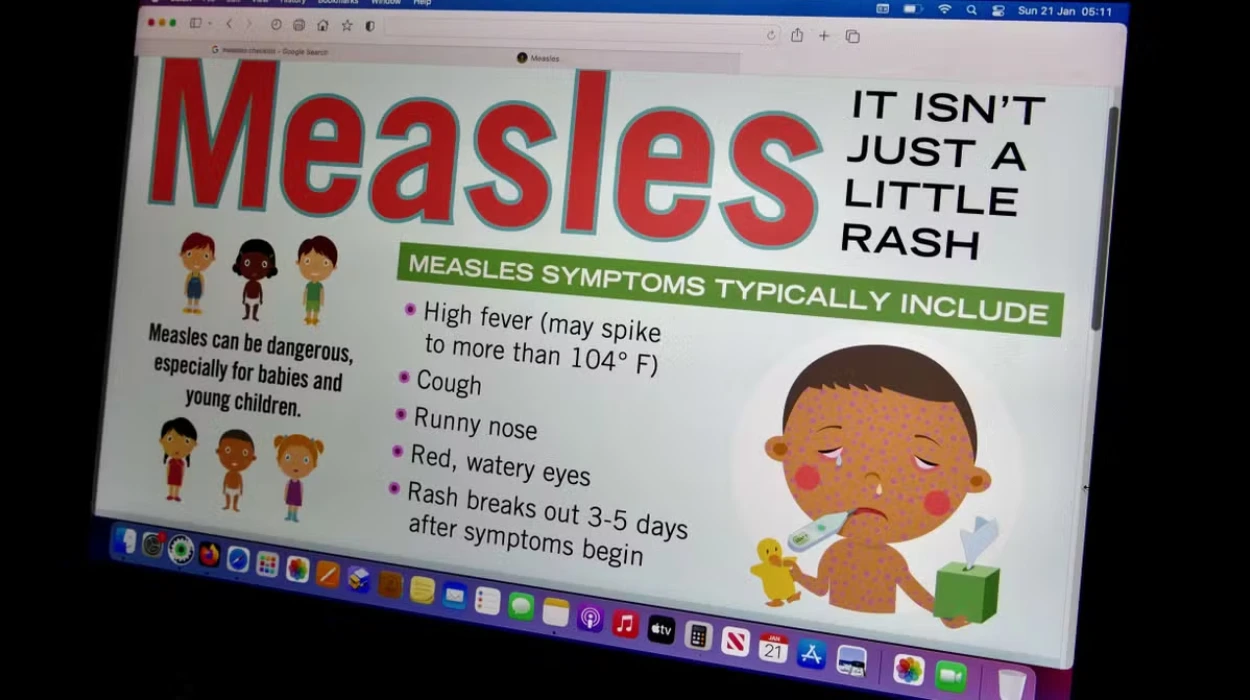London (Parliament News Magazine)- As Northern Ireland reports its first case of measles in seven years, the rest of the UK has seen a significant surge in the disease over the past year. The resurgence has raised concerns among health professionals, with Dr. Vanessa Saliba from the UK Health Security Agency (UKHSA) pointing to a “worryingly low MMR [measles, mumps, and rubella] vaccine uptake in some areas across the country.”
How Rapidly is Measles Spreading in the UK?
Since January 22, 169 new cases of measles have been recorded in England, bringing the total number of confirmed cases since the start of October to 581. For context, there were only two confirmed cases of measles in the entire UK in 2021, and 54 in 2022. Recently, a man in his 40s died in Ireland after contracting the virus during a visit to the West Midlands, an area where UK measles cases are at their highest since the 1990s. The Northern Ireland case, reported this week, involved an adult who became infected while traveling.
What Are the Symptoms of Measles, and Can It Be Fatal?
Measles, caused by a virus, spreads through coughs and sneezes. Symptoms include a high fever, sore and watery eyes, coughing, sneezing, and a red rash that covers the body. While measles can affect individuals of any age, children are at the highest risk. Most people recover within seven to ten days, but severe cases can lead to pneumonia, meningitis, seizures, complications that cause blindness, or even death. In wealthier regions, measles is fatal in about one in 5,000 cases, while in less affluent areas with weaker healthcare systems, the mortality rate can be as high as one in 100.
How Effective Are Vaccines?
Before the first measles vaccine was introduced in 1963, the disease claimed 2.6 million lives globally each year. By 2016, despite a much larger global population, measles-related deaths had dropped to 90,000 annually. The World Health Organization declared the UK free of measles in 2017, crediting widespread vaccination efforts. The MMR vaccine, introduced in the UK in 1988, offers lifelong protection against measles, mumps, and rubella. It is 99 percent effective and is typically administered to children in two doses: one at 12 months and another at around three years and four months. The global use of the MMR vaccine has significantly reduced measles infections, preventing an estimated 31.7 million deaths between 2000 and 2020.
Why Are Some People in the UK Refusing the Vaccine?
In England, MMR vaccine uptake among children for 2022-2023 was recorded at about 85 percent, the lowest level since 2010-2011, prompting fears of a measles resurgence. Despite its life-saving benefits, the MMR vaccine has been targeted by conspiracy theorists. In 1998, British physician Andrew Wakefield falsely linked the MMR vaccine to autism in a now-debunked study. Although Wakefield’s research was discredited and he was found to have acted fraudulently, his claims led to a significant drop in vaccination rates. The average uptake of MMR in England fell from 91.8 percent in 1996 to 79.9 percent in 2004, causing a rise in measles cases.
Today’s decline in MMR uptake in the UK is attributed to a variety of factors, including the influence of anti-vaccine conspiracy theories that gained traction during the COVID-19 pandemic. The spread of misinformation has made some parents skeptical of vaccines. In 2019, the European Commission and the World Health Organization urged governments to combat vaccine misinformation.
Which Other Diseases Are Threatening a Comeback in the UK?
In addition to measles, tuberculosis (TB) cases in England rose by 11 percent last year, with 4,850 cases reported in 2023 compared to 4,380 in 2022. TB, a bacterial infection that primarily affects the lungs, was once known as “consumption” due to the weight loss and wasting it caused. While TB remains linked to poverty and deprivation, it can be successfully treated with antibiotics. However, untreated TB can still be fatal.


